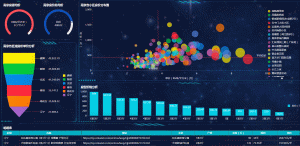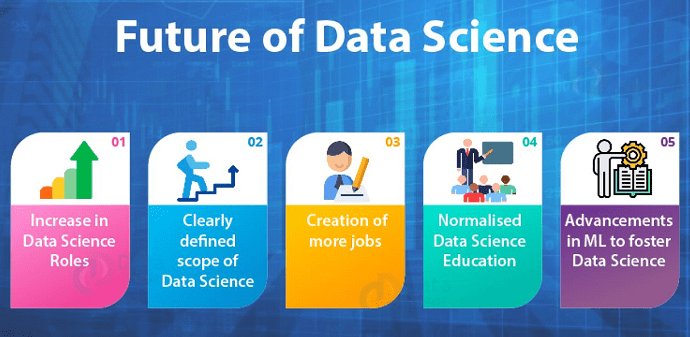Why is statistics important for Data Science?
Data Science is a scientific discipline, one that’s highly informed and dictated by computer science, mathematics, research, and applied sciences. Data is an integral part of today’s world– everyday individuals and corporations generate tonnes of data that can only be visualized and understood by experts.

Statistics provides the means and tools to find structure in big data as well as give individuals and organizations a deeper insight into what truths their data is showing. Statistics is one of the most fundamental steps of an insightful data science course– it’s also the linchpin that ties the whole process together from start to fruitful finish.
Finding structure in data, however large or small, and making predictions are crucial stages in data science that can make or break research. Statistical methods are the tool of choice here as using their methods, one can handle a plethora of analytical tasks to good results.
Enables classification and organization
This is a statistical method that’s used by the same name in the data science and mining fields. Classification is used to categorize available data into accurate, observable analyses. Such an organization is key for companies who plan to use these insights to make predictions and form business plans. It’s also the first step to making a massive dump of data usable.
Helps to calculate probability distribution and estimation
These statistical methods are key to learning the basics of machine learning and algorithms like logistic regressions. Cross-validation and LOOCV techniques are also inherently statistical tools that have been brought into the Machine Learning and Data Analytics world for inference-based research, A/B, and hypothesis testing.
Finds structure in data
Companies often find themselves having to deal with massive dumps of data from a panoply of sources, each more complicated than the last. Statistics can help to spot anomalies and trends in this data, further allowing researchers to discard irrelevant data at a very early stage instead of sifting through data and wasting time, effort, and resources.
Facilitates statistical modeling
Data is made up of series upon series of complex interactions between factors and variables. To model these or display them in a coherent manner, statistical modeling using graphs and networks is key. This also helps to identify and account for the influence of hierarchies in global structures and escalate local models to a global scene.
Aids data visualization
Visualization in data is the representation and interpretation of found structures, models, and insights in interactive, understandable, and effective formats. It’s also crucial that these formats be easy to update– this way, nothing needs to undergo a huge overhaul each time there’s a fluctuation in data.
Beyond this, data analytics representations also use the same display formats as statistics– graphs, pie charts, histograms, and the like. Not only does this make data more readable and interesting, but it also makes it much easier to spot trends or flaws and offset or enhance them as required.
Facilitates understanding of distributions in model-based data analytics
Statistics can help to identify clusters in data or even additional structures that are dependent on space, time, and other variable factors. Reporting on values and networks without statistical distribution methods can lead to estimates that don’t account for variability, which can make or break your results. Small wonder, then, that the method of distribution is a key contributor to statistics and to data analytics and visualization as a whole.
Aids in mathematical analysis and reduces assumptions
The basics of mathematical analysis– differentiability and continuity– also form the base of many major ML/ AI/ data analytics algorithms. Neural networks in deep learning are effectively guided by the shift in perspective that is differential programming.
Predictive power is key in how effective a data analytics algorithm or model is. The rule of thumb is that the lesser the assumptions made, the higher the model’s predictive power. Statistics help to bring down the rate of assumptions, thereby making models a lot more accurate and usable.
In just 2018, 16,000 freshers got enviable jobs in the analytics workforce, so the demand is high and unceasing. However, a mistake quite a few undergraduates make is majoring in Computer Science if there isn’t a course fully dedicated to data analytics, machine learning, or AI.
The fact of the matter is that ‘deep learning is applied statistics in disguise’! For more details, you can also visit – Imarticus Learning and can drop your query by filling up a simple form through the site or can even visit one of our training centers based in – Mumbai, Thane, Pune, Chennai, Bangalore, Hyderabad, Delhi and Gurgaon.


